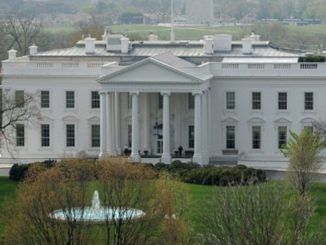
Moscow will never shift from its position opposing the NATO enlargement and warned the alliance that it will face dire consequences if it attempts to expand eastwards, Russia’s deputy foreign minister Sergey Ryabkov said on Monday as quoted by Russian media.
Stressing that there should be no further expansion of the US-led bloc, Ryabkov pointed that although both Soviet and Russian leaders were told repeatedly there would be no further movement of NATO to the east, the opposite happened.
He also noted that Russia will stand its ground and underscored that all attempts to present things as if Moscow has no right of a veto here are untenable and will result in dire consequences for Russia’s opponents that will be shown that their security isn’t strengthened.
Russia has continuously reiterated that Ukrainian NATO membership is the red line that must not be crossed and it’s exactly Ukraine that’s behind the recently skyrocketed tensions on the frontier with Russia although it’s Kremlin that’s accused of building up troops.
Kyiv has used the alleged threat that Russian troops present to push the alliance into allowing Ukraine to become a member state, which is Ukrainian President Volodymyr Zelensky’s flagship foreign policy aim.
But although NATO has warned Moscow against any military aggression against Ukraine, threatening it with severe financial sanctions, NATO Secretary-General Jens Stoltenberg suggested last month Kyiv may have to wait quite long for membership that requires meeting the NATO standards and green light from all 30 allies.
Ryabkov has further warned both the US and NATO that if Moscow’s demand for security guarantees is ignored and no progress towards a political and diplomatic solution is made, a new round of confrontation could be on the horizon in which Russia’s response could be military and technological.
Moscow has previously demanded security guarantees in form of a legally binding document in which NATO pledges to stop the expansion and not to deploy offensive weapons systems on the territories of neighboring countries.




Be the first to comment